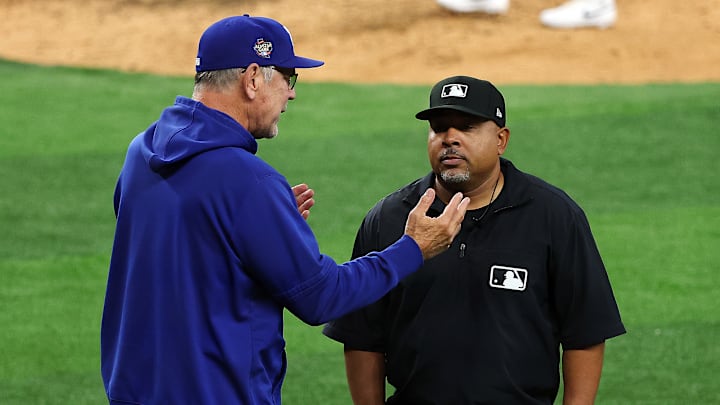The Texas Rangers are no strangers to weird plays over the course of their history. Back in 2018, Texas was the beneficiaries of a truly bizarre triple play against the Angels that took a lot of reviewing and explaining to parse.
Every single year, a team has a weird thing happen, and those anomalies can be the difference in wins and losses.
Sadly, Texas was on the wrong end of an umpiring call on Thursday against Oakland it what would become a 1-0 loss for the Rangers. What seemed like a routine pop up that would almost always get called an infield fly was not. And Jared Walsh's pop up with runners on first and second turned to disaster.
Oakland failed to make the catch, and the end result was a double play that ended the inning on the spot in a game where scoring chances were few and far between.
Just like they drew it up 😂 pic.twitter.com/CdonB47qHg
— A's on NBCS (@NBCSAthletics) April 11, 2024
The infield fly rule explained and how it cost the Rangers
First, the announcers having to come to grips with what happened here was objectively hilarious. Second, that the umpire didn't call the infield fly rule on this play was extremely unusual and it is more than understandable as to why Rangers fans were so irritated that it wasn't. They should've never "ran" themselves into a double play.
The issue in play here is the concept of "ordinary effort" when it comes to the infield fly rule, and that is purely based on umpire discretion. MLB rules say that any fair fly ball (bunts and line drives don't apply here) that could be caught by "ordinary effort" can be ruled an infield fly to prevent infielders from purposefully muffing catches to get force outs, double plays, etc. instead. The trick here is that the umpire has to call an infield fly before it is caught, and that means umpires have to guess what effort is going to be required to make a catch. In this case, the umpires thought that this was beyond ordinary effort and let things play out.
This isn't the first time that the infield fly rule has caused controversy, as the NL Wild Card Game between the Braves and Cardinals was essentially decided because an umpire called a ball that ended up landing in left field an infield fly and the Braves' runners couldn't advance. Like that game, this play proved to be costly to the Rangers as it ended a prime scoring chance in a tight game that they ultimately lost.
There is real merit to the infield fly rule, as the alternative of letting infielders get free double plays is truly terrible. However, umpires using this level of latitude in the rule's enforcement only adds to the growing sentiment that allowing humans to make these sorts of judgment in real-time doesn't really add much to the game. Often times, it just makes it worse.
